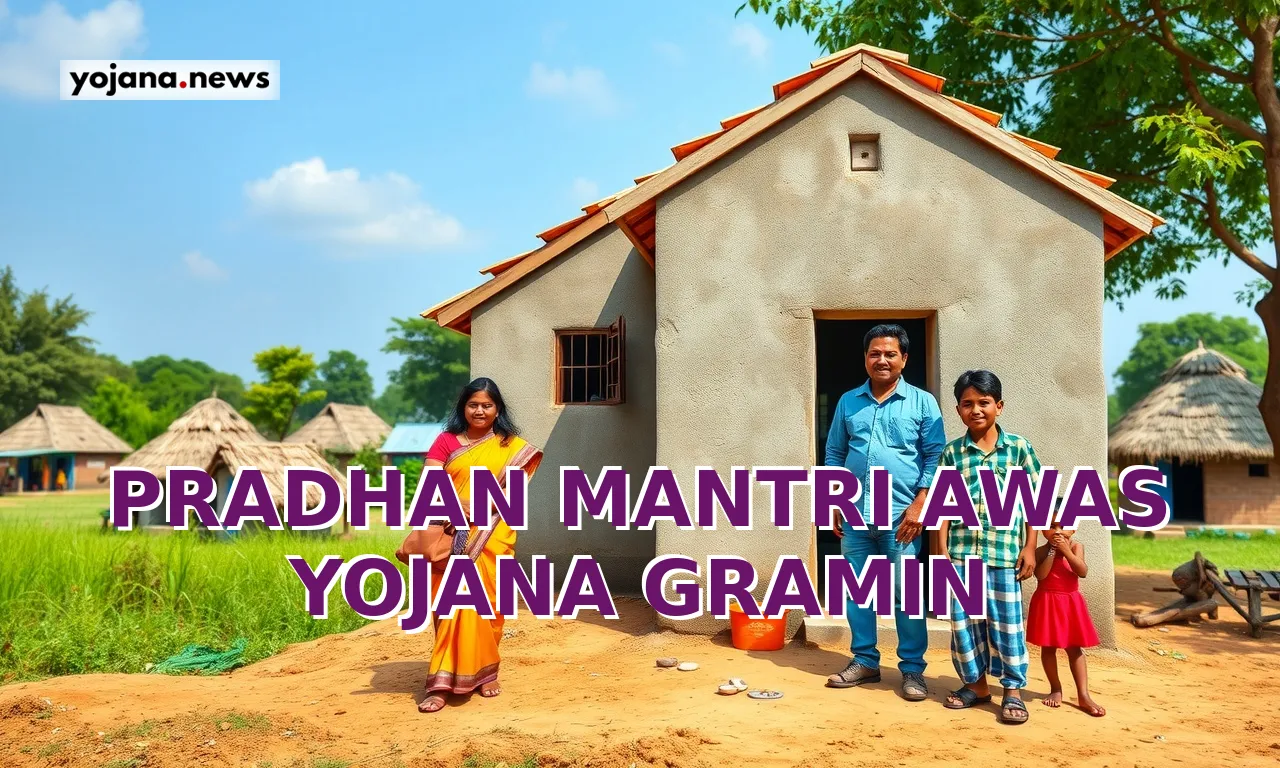- Understanding PMAY-G: A housing scheme aimed at providing durable homes to the rural poor.
- Eligibility Criteria: Specific conditions to qualify for assistance under PMAY-G.
- Simple Application Process: Use the AwaasPlus App to easily apply for housing benefits.
Pradhan Mantri Awas Yojana – Gramin (PMAY-G) is a flagship scheme to address the housing needs across rural areas in India. Launched on April 1, 2016, this scheme aims to provide concrete homes (Pucca House) for families without homes.
Managed by the Ministry of Rural Development (MoRD) and the Ministry of Housing and Urban Affairs (MoHUA), PMAY-G provides financial support to eligible families for building their pucca houses.
Government is inviting the online survey through the PMAY-G AwaasPlus mobile application. This app is created for easy application process for rural citizens.
Eligibility Criteria for PMAY-G
The eligibility criteria for PMAY-G is as following
Eligible Beneficiaries Include:
- Families without a pucca house.
- Households with one or no adult male members aged 16-59 years.
- Families with disabled members lacking other forms of support.
- Landless families dependent on daily wage labor.
- Households belonging to Scheduled Castes (SC), Scheduled Tribes (ST), and other marginalized groups.
Non-Eligible Beneficiaries Include:
- Income tax-paying families.
- Households owning two-wheelers, four-wheelers, or tractors.
- Government employees.
- Families who already own a permanent dwelling.
PMAY-G Survey for finding Eligible Beneficiaries
PMAY-G scheme is being implemented thorough survey process to accurately identifying eligible beneficiaries. Data from the Socio-Economic and Caste Census (SECC) 2011, local authorities and Gram Panchayats is used to find the eligible beneficiaries with precision. This process includes field visits, geo-tagging, and rigorous document verification to ensure that the help reaches the most deserving candidates.
Survey Data and Beneficiary Identification
- Data Source: Socio-Economic and Caste Census (SECC) 2011
- Conducted By: Gram Panchayats and local authorities
- Verification Method: Field visits, geo-tagging, document assessments
- Selection Criteria: Housing condition, land ownership, economic status, social vulnerability
- Purpose: To identify families eligible for financial assistance
Self Survey Application Process for PMAY-G
The process of self survey application for PMAY-G has been simplified through the AwaasPlus mobile app.
Here’s how to apply using the AwaasPlus App:
- Download and Install: Search for “AwaasPlus 2024” in the Google Play Store and install it.
- Login with Aadhaar: Enter your Aadhaar number for identity verification.
- Face Authentication: Complete the facial recognition step.
- Fill in the Application: Provide personal details, including name, address, and family information.
- Upload Required Documents: Submit scanned copies of documents such as Aadhaar, an income certificate, and land ownership proof.
- Submit the Form: Review and officially submit your application.
After submission, authorities will review your application, which may include a field verification. Those who qualify will be listed as PMAY-G beneficiaries, enabling them to receive financial aid.
PM Awas Yojana – Gramin Beneficiary List
PMAY-G beneficiary list contains the record of families selected under the scheme. This list, compiled through careful surveys by local authorities, ensures that resources reach the most deserving individuals.
Beneficiary List Contains:
- Name of the beneficiary.
- Details of the village and Panchayat.
- Head of the family’s name.
- Unique Beneficiary ID.
- Housing sanction details and fund disbursement status.
Required Documents for PMAY-G Survey
| Document | Purpose |
|---|---|
| Aadhaar Card | Identity verification |
| Income Certificate | Proves financial status |
| Land Ownership Proof | Confirms land possession (if applicable) |
| Disability Certificate (if applicable) | For disabled applicants |
| Bank Account Details | For fund transfer verification |
Importance of the PMAY-G Survey
The survey process essential for the Pradhan Mantri Awas Yojana plays a crucial role in ensuring that the scheme achieves its goals. By accurately identifying the families in genuine need, it assures that financial assistance is effectively targeted to improve housing conditions in rural regions. This transparency fosters trust and accountability within communities.
Key Advantages of PMAY-G
- Enhanced Financial Support: Offers increased funding compared to previous housing initiatives.
- Durable Housing Solutions: Provides pucca homes with basic amenities including toilets, electricity, and LPG connections.
- Employment Opportunities: Generates job openings through construction projects in rural areas.
- Technological Integration: Uses digital platforms to streamline applications and disbursement processes.
- Empowerment of Rural Communities: Aims to foster self-sufficiency and uplift living standards.
Over 2 crore houses have been constructed under the PMAY-G initiative, significantly pushing forward India’s aim for “Housing for All” and ensuring that every rural family has access to a secure and dignified living environment.

